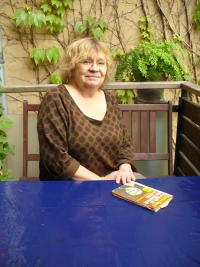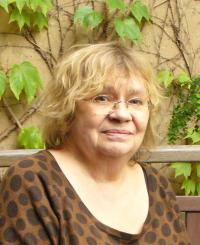The most important thing is empathy towards other people.

Stáhnout obrázek
Heidi Bohley was born in 1950 in Görlitz. Her parents arrived in Görlitz three years before her birth, after they had been displaced from a village in Lower Silesia located only 50 kilometers away. As a child, she always felt the pain of her parents dreaming about the unattainable home that was so close but yet so distant at the same time. Therefore, Görlitz never really became her hometown. Her earliest childhood memories revolve around 17 June, 1953, when her father was arrested in the wake of the uprising. However, after a few days, he was released again. The family tried not to fit too much into the structures of the GDR and thus Bohley was not even a member of the Communist youth organization “The Pioneers”. Therefore, she was only able to pass the school-leaving exam with the intercession of a teacher. In 1969, she began her university studies of industrial design in Burg Giebichenstein. The atmosphere there was freer than in Görlitz and Bohley began to meet schoolmates for discussions and the exchange of ideas. An important issue at this time was the suppression of the Prague Spring the year before, the brutality of which had shocked many of the students, and the resulting questions about the future of socialism. The regular meetings were held in the so-called demolition houses in Halle that became a cheap home for many students living in Halle in that period. Bohley and her fellow students were always concerned to name specific problems and not just to lament and complain in general, as they also wanted to avoid being accused of being against socialism. The meetings abruptly ended in September 1973, when a friend was arrested and sentenced to five years in prison. Two years earlier, in 1971, Bohley had met her first husband, the Czech Ladislav Vyroubal. In January 1973, their daughter Marie was born. However, in May of the same year, her husband died of an asthma attack. Bohley has ever since maintained a strong connection to Czechoslovakia and has even kept up the contact to her Czech parents in law. The seventies were a rather apolitical time for Bohley. The circle of Bohley‘s friends grew smaller because of arrests and exiles. In 1982, Bohley‘s political phase began: The GDR had adopted a new military service law which allowed for the drafting of women for military service. Prompted by her sister in law, Bärbel Bohley, (her second husband‘s sister), Heidi Bohley filed a protest note as well. However, she received no response to her note, whereupon the disgruntled women formulated a joint protest petition and gathered 150 signatures. This initiative became the foundation for the GDR-wide women‘s movement „Women for Peace“. The Protestant Church served as the public platform for the work of the movement. The Women for Peace were also in touch with the West-German peace movement, which served as a model. At the same time, however, the very same peace movement would also reject the Women for Peace. Bohley herself does not see her commitment of that time as something special, but rather as something she had to do because there was simply no one else who would do it. The women‘s movement became a great source of support for Heidi Bohley in the eighties. Also important was the inspiration by Václav Havel, whom she was able to meet in Prague in 1985. As a consequence, she was forbidden to enter Czechoslovakia until 1990. After 1989, Bohley served for 10 years as a member of the city council in Halle representing the New Forum. In 1995, she founded the association „Zeitgeschichte - Association for Experienced History“, which strives to tell history from the perspective of the people and has published numerous publications. Today, Bohley lives in Dresden and works for the Zeitgeschichte Association.

